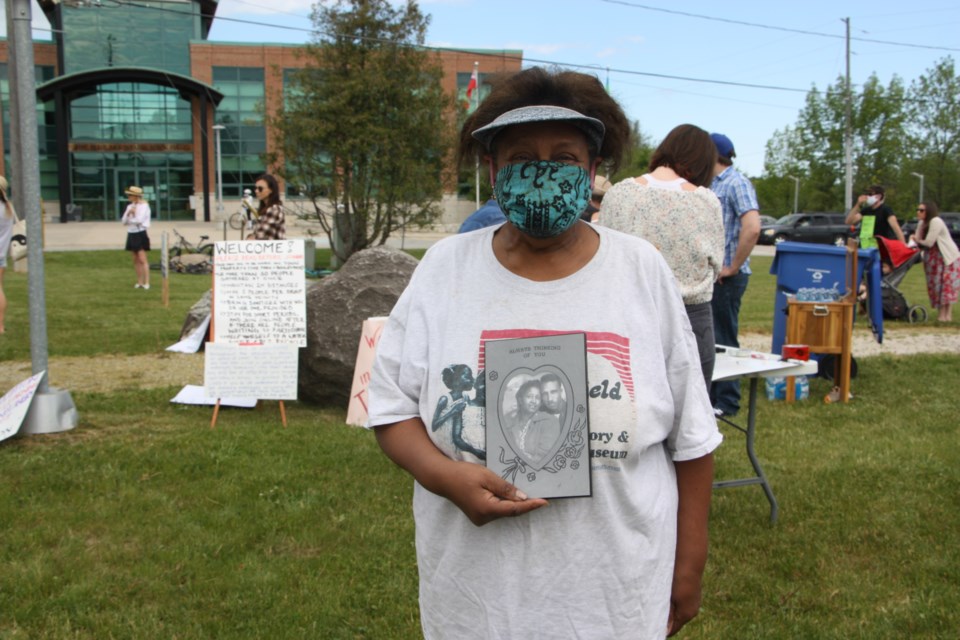On Monday, council will be voting on a plan to build a memorial and name a park after Herbert Wilson, a Black man who died under suspicious conditions while working for the town in 1955.
Town staff presented a plan to council’s corporate and community services standing committee on Sept. 14, recommending the town name the parklands adjacent to Admiral Collingwood Public School “Wilson-Sheffield Park.”
The report also recommends installing a memorial in the boulevard of Sixth Street near Maple Street.
Herbert Wilson was the first Black foreman employed by the town of Collingwood, where he worked in the 1950s.
He died after falling from a ladder while working on a tree in March 1955. He was 37 years old. Some reports suggested his co-workers sabotaged the tree branch that knocked him off the ladder.
It’s also not clear why Wilson, as the senior staff on duty, was the one up the ladder.
There was no investigation into his death at the time. His death followed another violent work incident. Months before he died, Wilson came running home from work early one day after being sprayed head to toe with hot tar.
While there was a police investigation into Wilson’s death in 2002, by then most of the people who witnessed his death had died in old age.
Wilson was married to Yvonne Sheffield, and the two had three children. Their son, Herb Wilson lives in Wasaga Beach. Their daughters Sylvia and Carolynn Wilson still live in Collingwood. Sylvia was three months old when her father died.
“The facts of the Herbert Wilson tragedy easily provoke concerns that the accident suffered was, at the very least, related to racial discrimination,” stated the staff report, which will go to council on Sept. 20.
The monument proposed by staff would be located at the site of Wilson’s death, and would convey the story of Wilson’s life and death.
“Aside from a life being taken from his family, Collingwood didn’t live up to the standards we’re holding ourselves to today,” said Dean Collver, director of parks, recreation and culture and the senior town staff member presenting the report to the committee. “We feel the community should create a testament to this event that happened in our history.”
Mayor Brian Saunderson also added he’d like the current town council to offer an apology on behalf of the town to Wilson’s family.
In addition to naming the parkland near Admiral school after both the Wilson and Sheffield families, Collver said staff are working on ways to provide more information at town parks that are named after people.
Wilson was a veteran of the Second World War and an active community member. His wife, Yvonne Sheffield was a champion track athlete in her youth, but was denied access to competitions for being Black.
She’s since been inducted into the Collingwood Collegiate Institute Black and Gold Society for her athletic accomplishments, and for the titles she inevitably would have won had she been allowed to compete.
Both the Wilson and Sheffield families settled in what is now Collingwood before the town was incorporated. Their history is well-preserved by the efforts of Carolynn and Sylvia Wilson, who own and operate the Sheffield Park Black History Museum.



